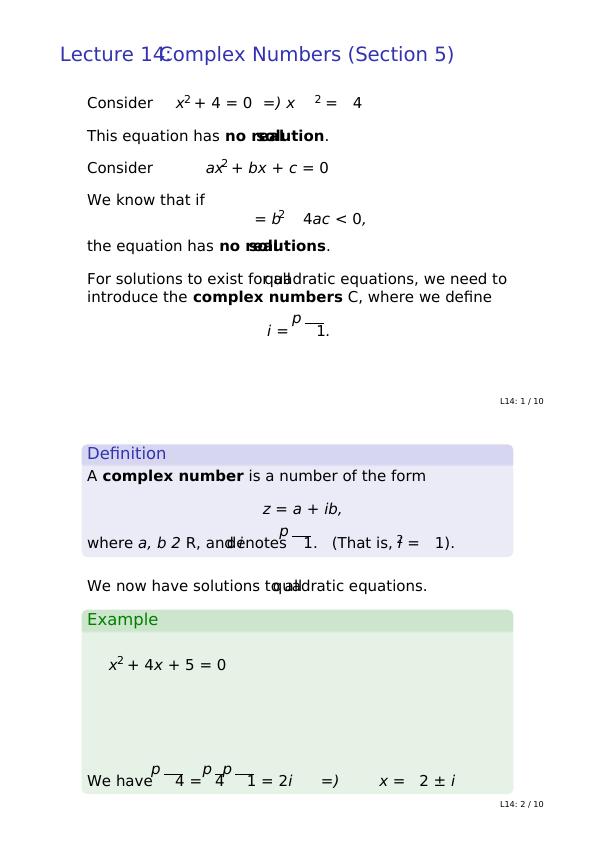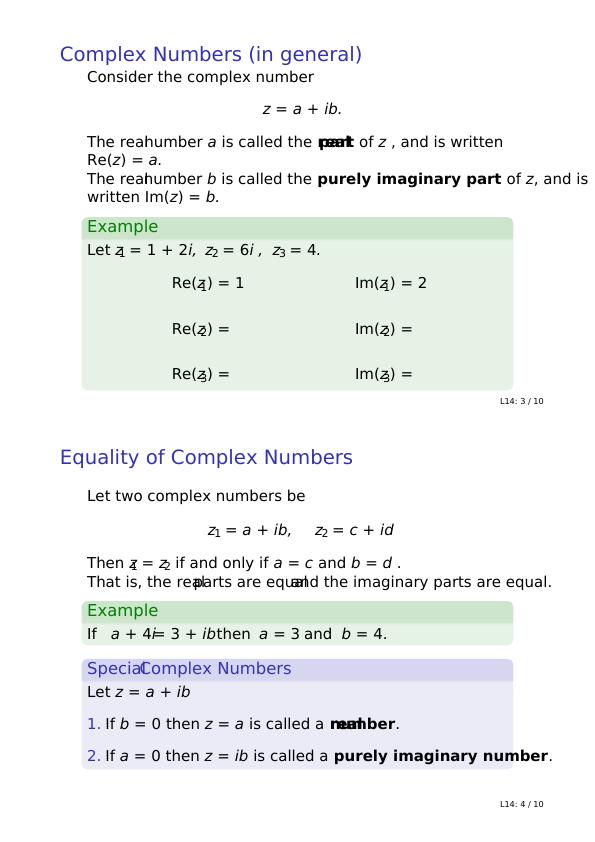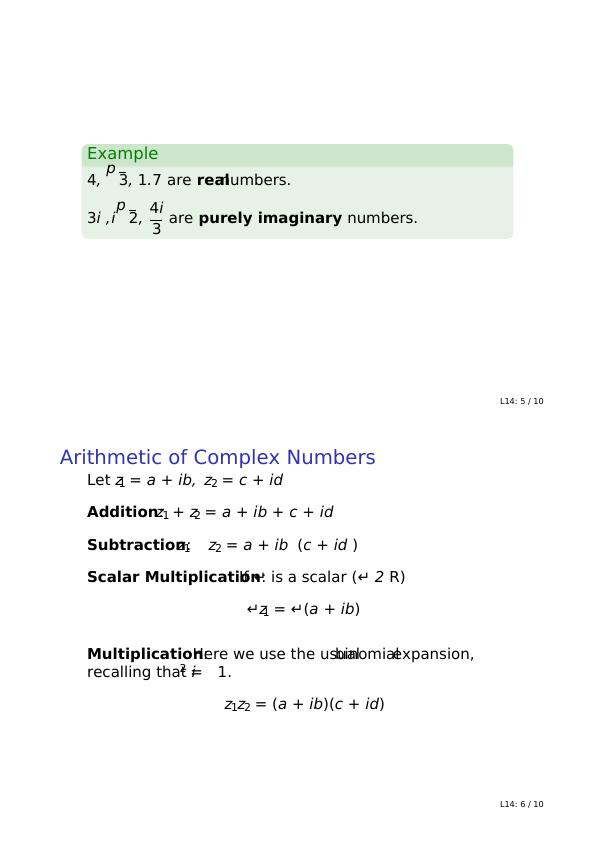Lecture 14: Complex Numbers (Section 5)
Added on 2020-11-09
10 Pages1389 Words264 Views
End of preview
Want to access all the pages? Upload your documents or become a member.
Complex numbers: real and imaginary parts
|3
|957
|210
Differentiating the Equation Solution 2022
|6
|330
|20
Transfer Function and the Laplace Transformation
|20
|5953
|377
Arithmetic Progression Assignment
|10
|1152
|84
Bayesian Approach Assignment
|11
|1406
|202
Decision Support Tools
|11
|1590
|156



